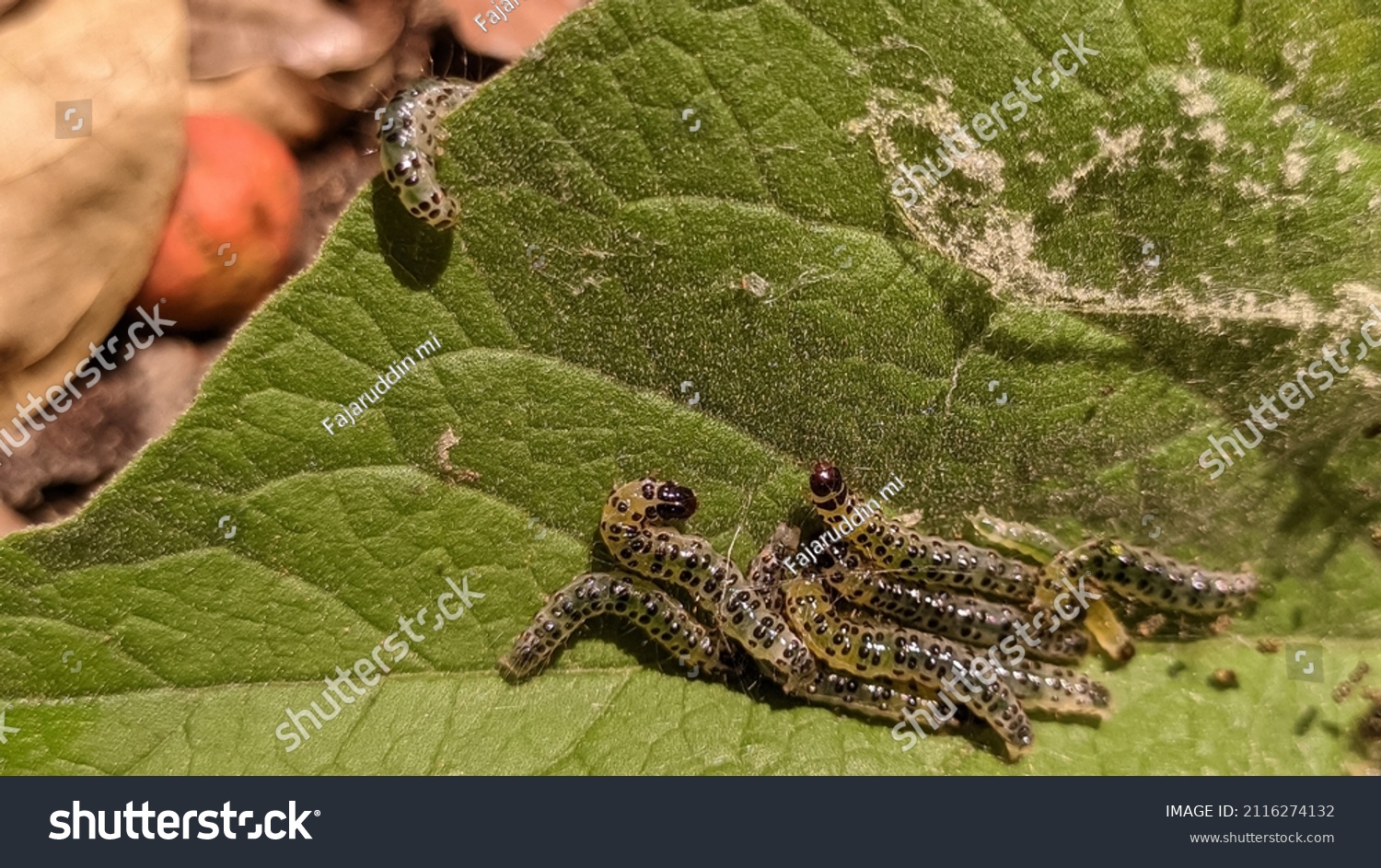
Picture Yellow Caterpillar Black Spots On Stock Photo 2116274132 Shutterstock
Yellow caterpillars might be yellow through all of their life stages or they might turn yellow either in the first or in the last instars. Caterpillars often have black or red contrasting colors as purely-yellow species are rare. Table of Contents Are Yellow Caterpillars Poisonous?

Yellow caterpillar with black spots [australia_daintree_248]
Most caterpillars are colored either in shades that make them harder to spot against their host plant, such as greens and browns, or warning shades such as red, blue, orange, and yellow, that warn potential predators that the caterpillars are poisonous and unpalatable.

Close Up of a Caterpillar with Yellow and Black Spots on a Leaf Stock Photo Image of beautiful
The caterpillar's black spots resemble the markings on a leopard's skin, giving it the nickname "Leopard Lily Borer." It is a brightly colored yellow and black caterpillar with black and brown bands around each body segment. Some red dots are also on top of each segment, making identifying Lilly Borer Caterpillar easier.

Yellow caterpillars with rows of black dots a black head and long fine hairs bunched in groups
This caterpillar is identified by tufts of bristly yellow hairs, a shiny oval black head, and long black spines that can grow to about 2 inches (5 cm) in length. As the caterpillar matures, its fuzzy yellow color turns to pale yellow or white. The American dagger moth caterpillar doesn't sting like a wasp.

Pretty Yellow Caterpillar I haven’t seen this kind of caterpillar before, I like the aggressive
The Eight-spotted Forester Caterpillar, another black and yellow caterpillar found mainly in North America, is distinctive due to its yellow spots on a black base. They usually feed on grapevine and Virginia creeper plants. Distinctive features of this caterpillar include: Black body with yellow spots; Long white hairs around spots; Bright.

Spicebush Swallowtail Caterpillar
The Cinnabar Moth Caterpillar is a yellow and black caterpillar that can be found in North America. It is named after its striking colors, which resemble those of the mineral cinnabar. This caterpillar has a yellow body with black bands and spots. It feeds exclusively on the leaves of plants from the genus Senecio, particularly ragwort.

Yellow With Black Spots Caterpillar Up Its Grass Stock Photo Image 54774204
Pixabay.com Caterpillars in This Guide 25 of the Most Common Caterpillars in North America Banded Woolly Bear (13 fuzzy segments in a black-orange-black pattern) Tomato Hornworm (large and green, with seven white, V-shaped stripes on each side and a dark blue-black horn)
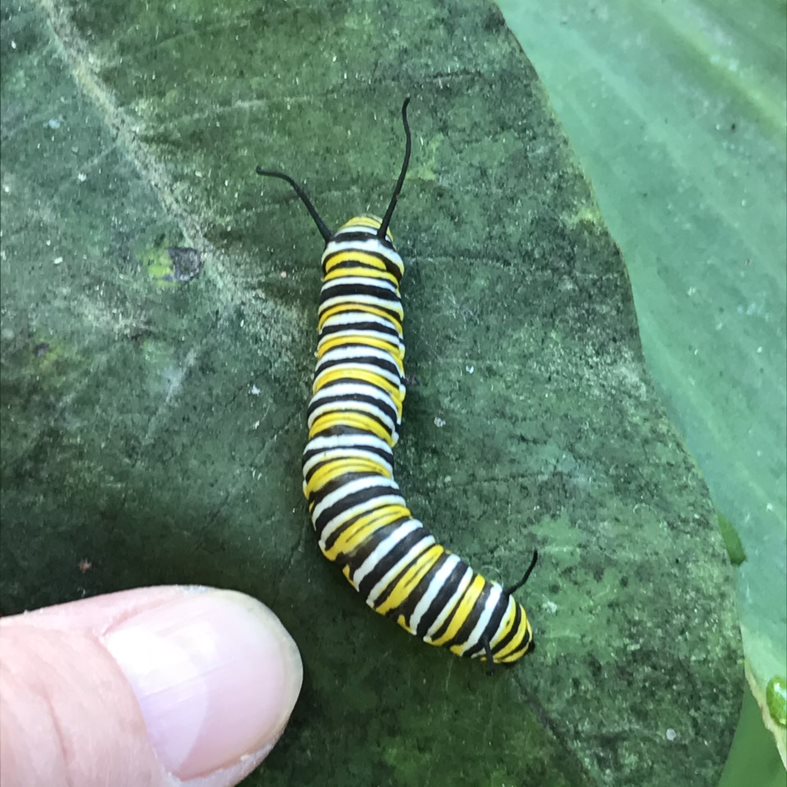
Identifying Two Common Garden Caterpillars New Jersey Audubon
What does it turn into? A beautiful moth that flies at dusk and acts like a hummingbird Does it sting? No What does it eat? Bedstraw and fireweed Will it seriously damage plants or trees? No Can you raise it to an adult? Yes The adult caterpillar of Hyles gallii has bright spots and a pale line down the middle of the back (dorsum).

Black and Yellow Spotted Caterpillar. My photo gallery, Black n yellow, Steve
The black and yellow monarch caterpillar grows between 1" and 1.7" (2.5 - 4.5 cm) long. You will find the monarch caterpillar feeding on milkweed. Unfortunately, this diet makes monarch caterpillars one of the few poisonous black and yellow caterpillars. Black and Yellow Caterpillar Identification
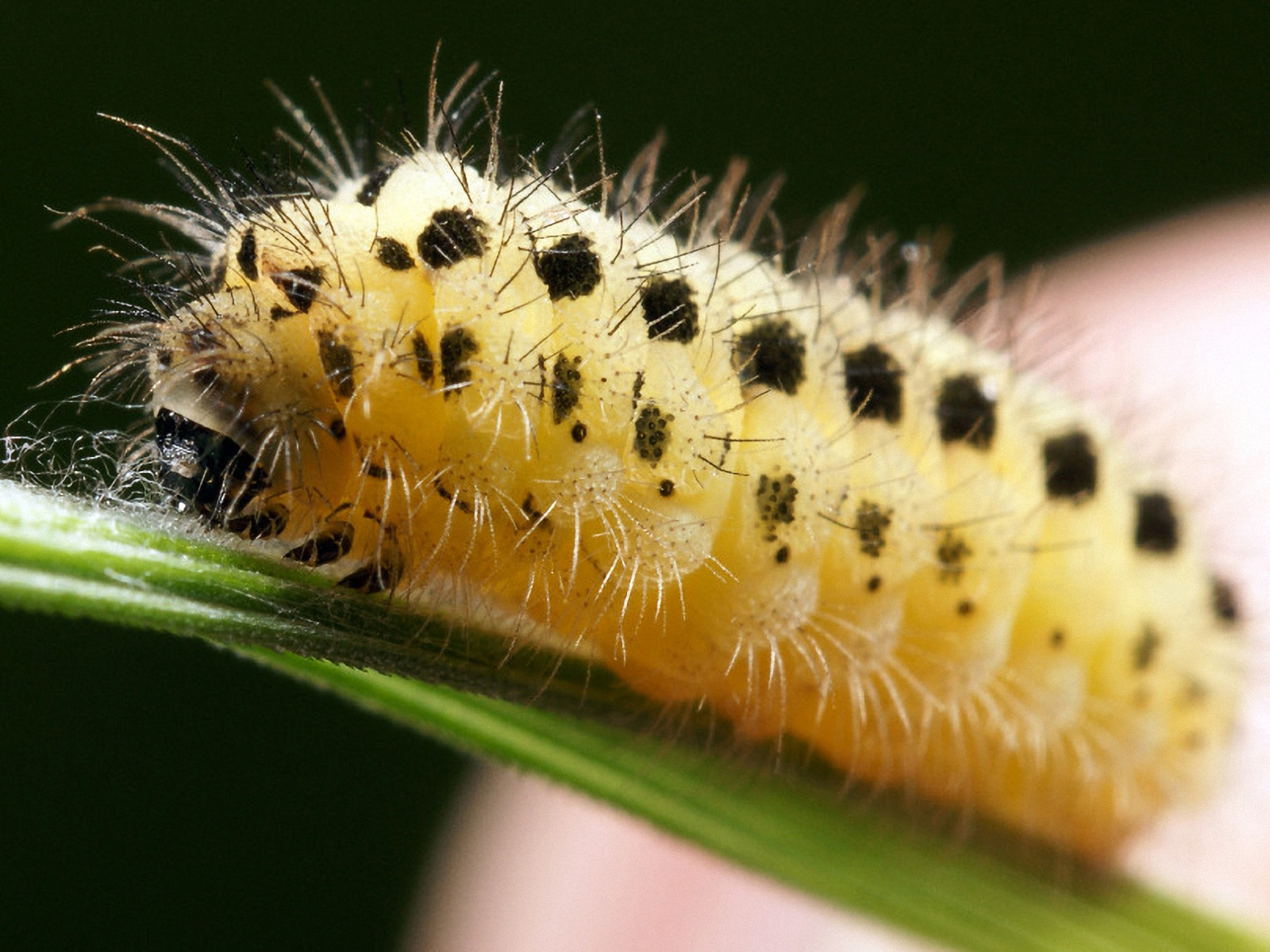
I Love Insects A Very Fat Yellow Caterpillar With Black Dots On His Body
Black and yellow caterpillars can be recognized by their unique color patterns, unusual markings, legs, prolegs (also sometimes referred to as false legs), antennae, the presence of hairs or spines, and size. Some species of caterpillars can also be distinguished by the host plant where they usually stay and eat.
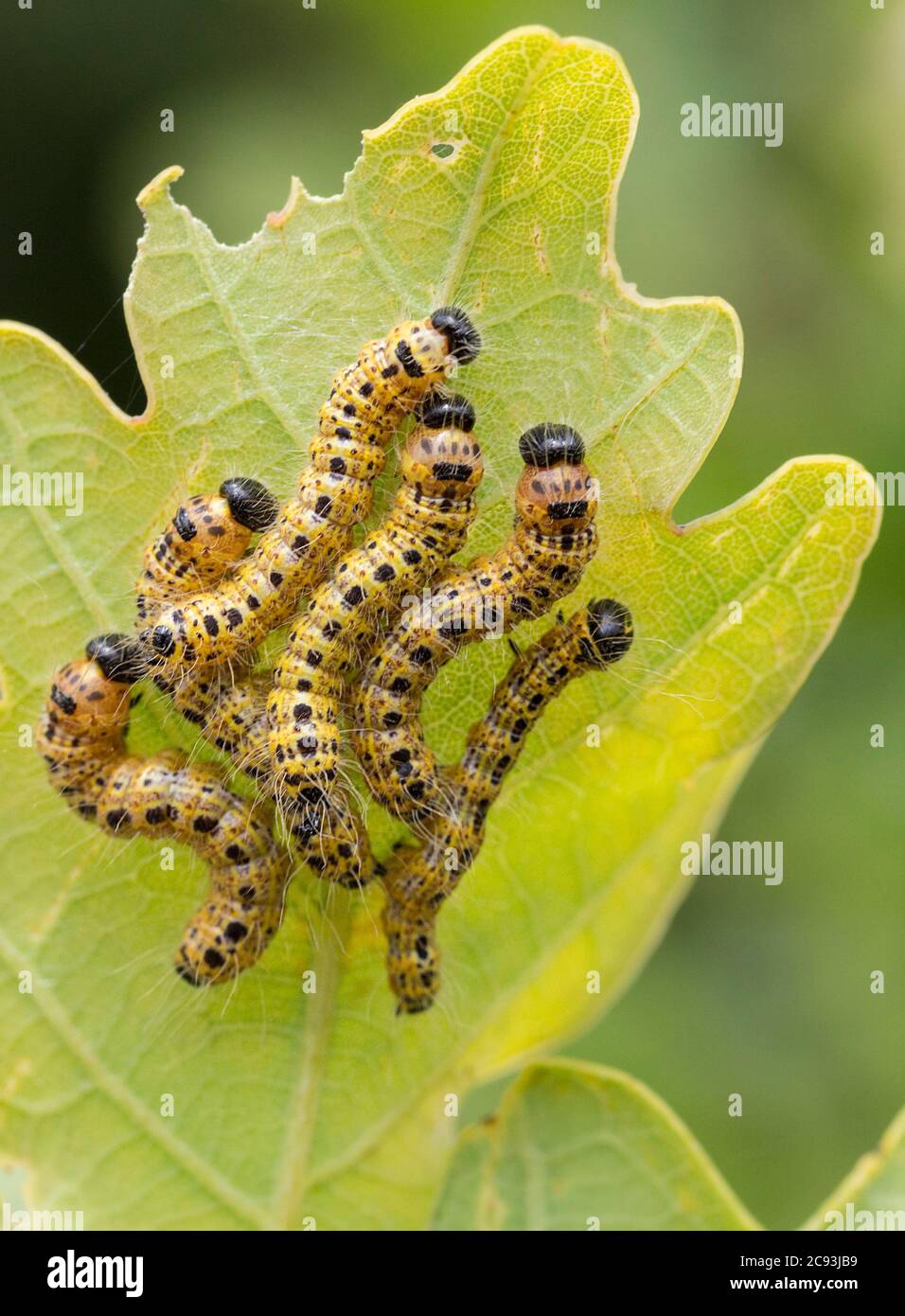
Yellow And Black Caterpillars High Resolution Stock Photography and Images Alamy
September 5, 2022 by americangardener A caterpillar is the larval stage of a moth or butterfly. It is the second part of their four-stage life cycle: egg, larva, pupa and adult. Caterpillars are typically voracious feeders and many of them are among the most serious of agricultural pests.
UK yellow and black what species is it? caterpillars
Yellow and black colors are specific to the Smeared Dagger Caterpillar at various growth stages. This is a species that has alternating longitudinal black and yellow bands across its body. Red bands appear in the later growth stages across its body as well. The pupal stage of the species is marked by dark brown coloring.

Black with Yellow Stripes and Dots Caterpillar Healthy breakfast options, Whole food recipes
Examples of yellow and black caterpillars are the monarch, white-marked tussock, yellow-spotted tussock, six-spot burnet, catalpa sphinx, and giant sphinx. These crawling creatures have to turn into beautiful winged insects. This identification guide provides descriptions and pictures of various black and yellow caterpillar species.

Yellow caterpillar with black spots [australia_daintree_254]
The color of the spiny hairs (called setae) of certain fuzzy caterpillars gives them a yellow appearance. Other yellow caterpillars, which appear to be striped caterpillars, have yellow and black patterns. Surprisingly, yellow caterpillars have spiky or hairy characteristics that differentiate them from other species of caterpillars.
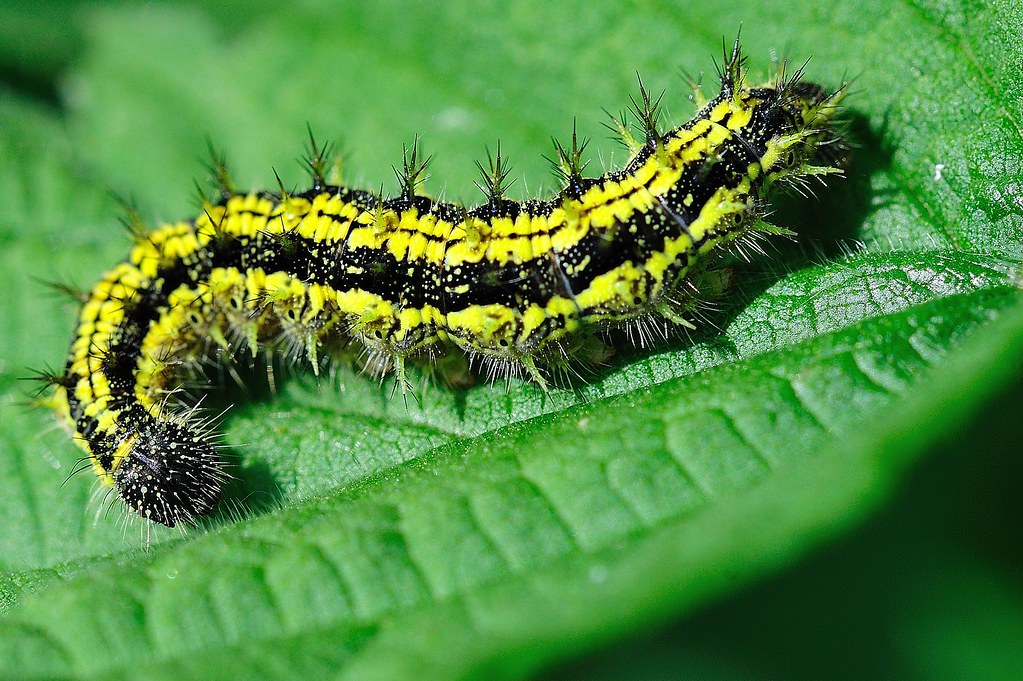
Yellow and black fuzzy caterpillar Kemal ATLI Flickr
The monarch caterpillar ( Danaus plexippus) is quite easy to identify with its black, white, and yellow stripes. Monarch caterpillars gorge on milkweed which makes them poisonous to other birds and insects. Stripy monarch caterpillars grow to between 1" and 1.7" (2.5 - 4.5 cm) long.

Those flashy fall caterpillars aren’t as dangerous as you might think — well, most of them anyway
Description: Up to 7 cm long. Hairy, with long dark hairs on the sides of the body and shorter orange hairs on top. Young caterpillars are dark with orange bands. Oak eggar When & where: August-June. A variety of habitats including grassland, heathland, fens, and hedgerows. Often found crawling across paths in spring.